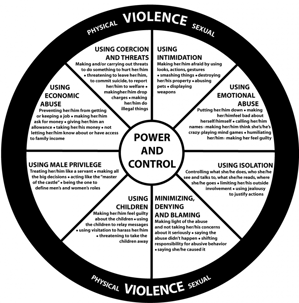The Violence Against Women Act (VAWA) was a groundbreaking move in 1994 to address and mitigate the deeply rooted issues of domestic and sexual violence in the U.S. While physical violence often stands out as the most visible form of abuse, VAWA’s acknowledgment of emotional abuse represents a crucial step towards understanding the multifaceted nature of domestic violence.
Understanding Emotional Abuse:
Emotional abuse is insidious, often lurking in the shadows of relationships, invisible but immensely harmful. Unlike physical injuries that heal over time, emotional wounds can persist, leading to deep-seated psychological scars. Such abuse manifests through persistent patterns of behavior where one partner seeks to gain power and control over the other. This can involve belittling, constant criticism, intimidation, humiliation, or isolating the victim from friends and family.
VAWA’s Stand on Emotional Abuse:
VAWA was revolutionary in that it didn’t limit its scope merely to physical violence. Instead, it acknowledged the broader spectrum of abuse survivors face. Emotional abuse, despite being difficult to recognize and prove, became an essential component of understanding domestic violence under VAWA. The act’s comprehensive approach offered resources and support for those undergoing mental and emotional torment, validating their experiences in legal settings.
Challenges in Addressing Emotional Abuse:
Despite VAWA’s progressive stand, there remain challenges in addressing emotional abuse. For one, the lack of physical evidence can make it difficult for survivors to prove the abuse they’ve experienced. Emotional trauma doesn’t leave bruises or scars that can be photographed or documented. As a result, survivors might face skepticism when trying to gain protections of legal remedies based on emotional abuse alone.https://www.womenslaw.org/laws/federal/immigration/vawa-abuse-victims/vawa-self-petitions/basic-info-about-vawa-self-2
Another challenge lies in societal perceptions. Emotional abuse is frequently downplayed, with outsiders often suggesting the victim is ‘overreacting’ or urging them to ‘just leave.’ Such attitudes betray a misunderstanding of the power dynamics at play and the genuine harm that emotional and psychological torment can cause.
The Way Forward:
Addressing emotional abuse requires a multi-pronged approach. Awareness is paramount; society must recognize the signs of emotional abuse and understand its detrimental effects. This begins with comprehensive education efforts, starting from schools and extending to public awareness campaigns.
Further, legal provisions can be strengthened. While VAWA provides a framework, individual states can bolster their laws to ensure that emotional abuse is treated with the severity it merits. This involves not just strictures against perpetrators but also robust support systems for survivors, from counseling to reintegration efforts.
Finally, community support plays a crucial role. Communities must be educated to identify and intervene when they witness emotional abuse. This doesn’t mean invasive interference but offering a helping hand, a listening ear, or directing the survivor towards resources that can assist them.
Conclusion:
The Violence Against Women Act was undoubtedly a monumental step forward in the fight against domestic violence. Its recognition of emotional abuse highlighted a pervasive yet often overlooked form of violence. As society progresses, it’s essential to keep this conversation alive, ensuring emotional abuse is acknowledged, understood, and, most importantly, combated at every level.
Please note that while this article offers an overview, domestic violence and the intricacies of VAWA are complex subjects. For specific advice and information, it’s always best to consult with legal professionals or those specializing in domestic violence advocacy.
The post Emotional Abuse: The Silent Struggle in VAWA’s Framework appeared first on Immigration Law Office of Karen Winston.

